In every type of online business, the time comes when we must think about the importance of keywords. In this, I am going to explain in depth how you can easily do your keyword research through the Semrush tool.
Businesses are constantly motivated to increase their online visibility and attract the right audience.
One of the most crucial strategies to achieve this is through effective keyword research.
By understanding the importance of keywords and harnessing their potential, businesses can significantly enhance their online presence, drive targeted traffic, and ultimately boost their success.
Table of Contents
ToggleWhat are the Benefits of Keyword Research?
We Can Generate Targeted Traffic
Through keyword research, we can identify the exact words that our readers are using in online searches.
By optimizing our website and content for these specific keywords, we can generate highly targeted traffic.
Enhanced Content Optimization
Keywords serve as the foundation for content creation and optimization.
Conducting thorough keyword research allows us to create great, optimized, and engaging content.
Can Improve Search Engine Ranking
When your website is optimized with relevant keywords, search engines can better understand its relevance and credibility.
By consistently using targeted keywords, we send strong signals to search engines, allowing them to recognize our website as authoritative and relevant for particular search queries.
Can Increase ROI (Return on investment) and Conversions
Keyword research helps us to identify long-tail keywords, which often have lower competition but higher conversion rates.
What is the long tail keyword?
It is the keyword that has more than 2/3 words
Example: Where to find Vegan food in Delhi
By focusing on these specific terms, we can increase the return on investment (ROI) of our digital marketing efforts and achieve higher conversion rates.
Without optimizing our blogs/articles/pages against keywords, ranking on Google’s first page might be difficult.
But without content quality, optimized content on keywords has no meaning.
As there is no meaning of great plating without taste in food.
Anyway, our main priority is to create excellent quality content for our users based on some research.
After that next priority goes to optimize your blogs/articles based on keywords. So that your content would be accessible to the rest of the world.
So, it is better to create a keyword list before writing any content.
If you have a keyword list in your mind, so while writing the content, you can optimize the content naturally on those keywords.
So, our first job is to create a keyword list.
In this blog, I will explain how you can easily create your valuable keyword list.
Step by Step Keyword Research Using Semrush
It is a 3 Step process to get the best keyword list.
- Figure out your seed keywords
- Create a keywords list based on the seed keyword
- Analyze the potential of each keyword & make a final list of selected keywords.
In the last 2 steps ( 2,3) I will use the Semrush tool for keyword research.
Let’s see each step in detail.
Step 1# Create one Seed Keywords list
What is a Seed Keyword?
The seed keyword is a small 1 or 2-word keyword that explains the area in which you want to write your content (blog/article).
Before going into detail, you should know your niche; if you have not decided on your niche, you can refer to our niche guide , which may help you.
What is the niche?
Niche is the area in which you want to write your content (articles/blogs).
Examples: Fashion, Food, Spiritualism, Travel, etc
Till this stage of keyword research, I assume you must know what your area of writing should be.
To explain this blog, I am using Vegan food as a niche.
What is Vegan food?
It is that food in which we don’t include animal products.
I picked one seed keyword as Vegan; you may call this root seed keyword
Root Seed Keyword: Vegan
Now you will see how to get more seed keywords related to Vegan.
How to Find More Seed Keywords Based on Root Seed Keyword:
Our root seed keyword is Vegan.
The best way is just googling the Vegan keyword in the Google search Bar.

a little scroll down the window.
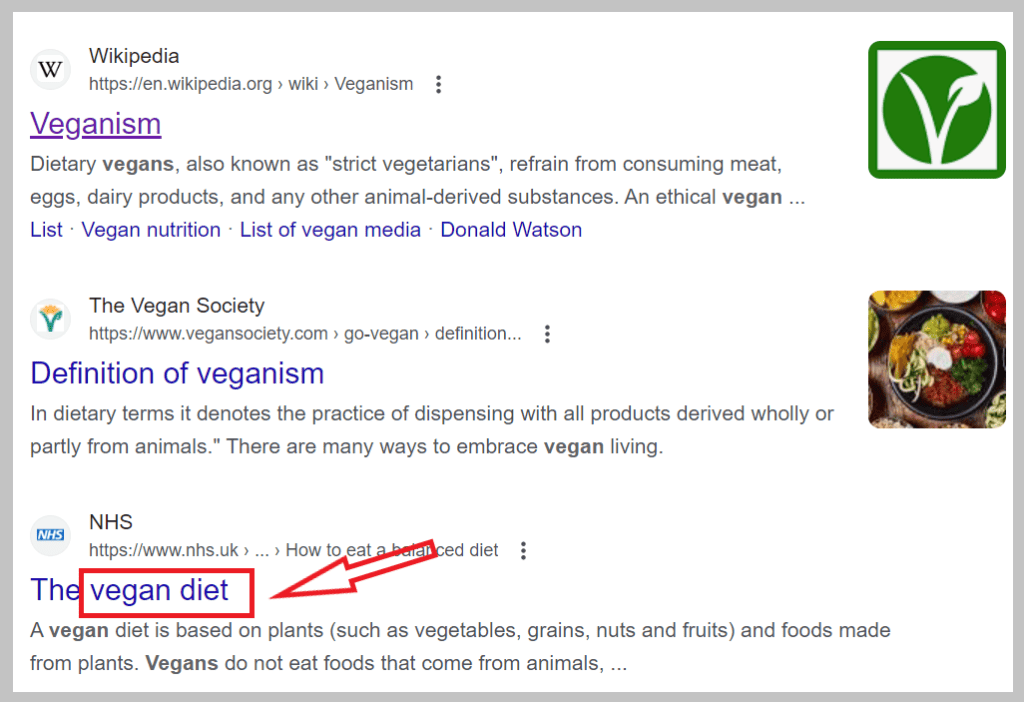
I picked one more seed keyword as vegan diet from the above screenshot.
Just scroll down the Google search page to see more seed keywords.
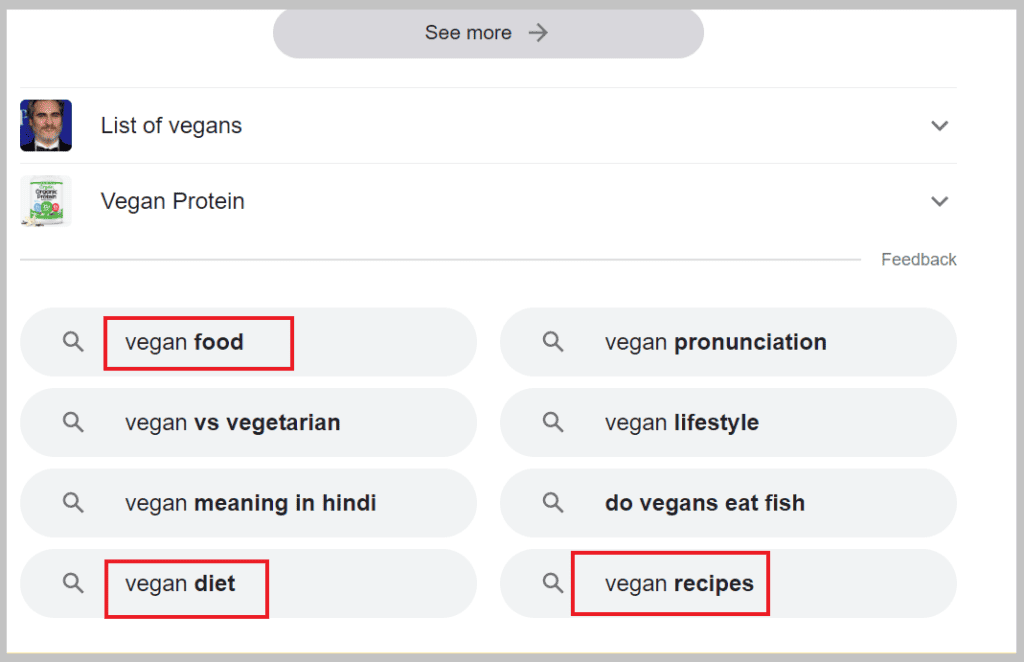
And collect many new seed keywords related to Vegan as follows.
- Vegan
- Vegan diet (new)
- vegan food (new)
- vegan recipes (new)
Now we have collected 3 more great seed keywords on Vegan.
Dig something more and click on Video in the Google search bar.

Scroll down.
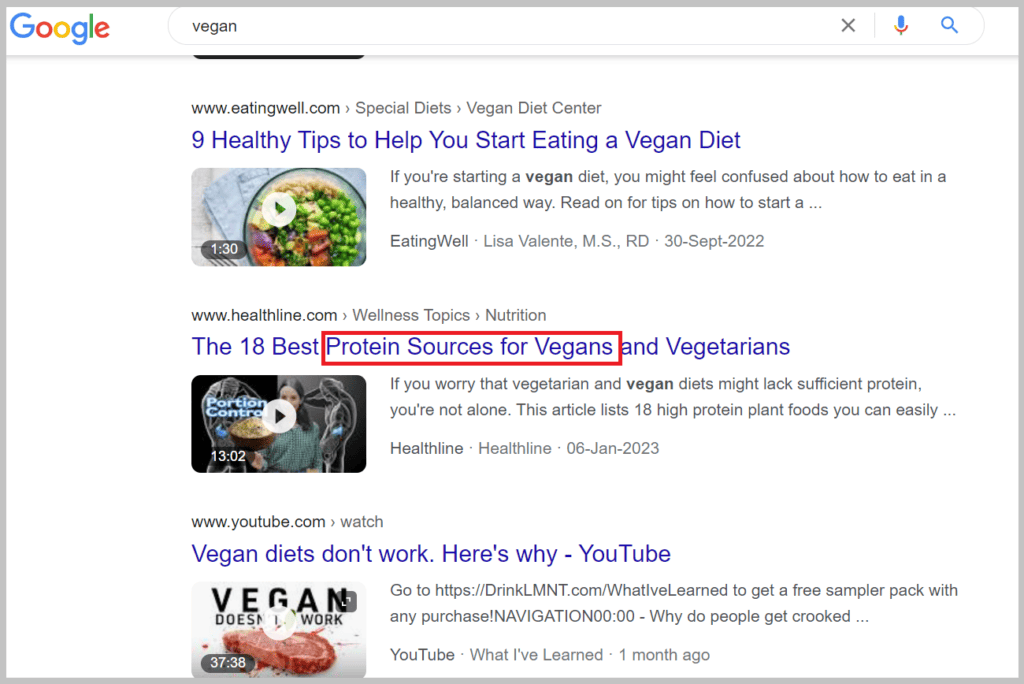
you can see one keyword as Protein Sources for Vegans.
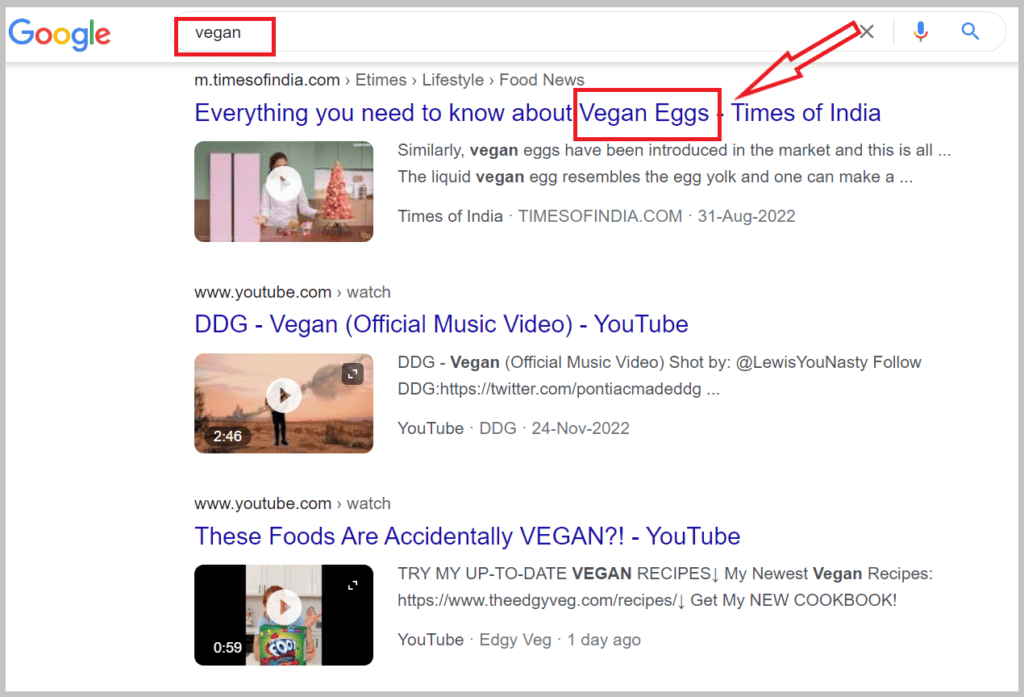
See Vegan Eggs as the seed keyword.
Scroll down a little down more.
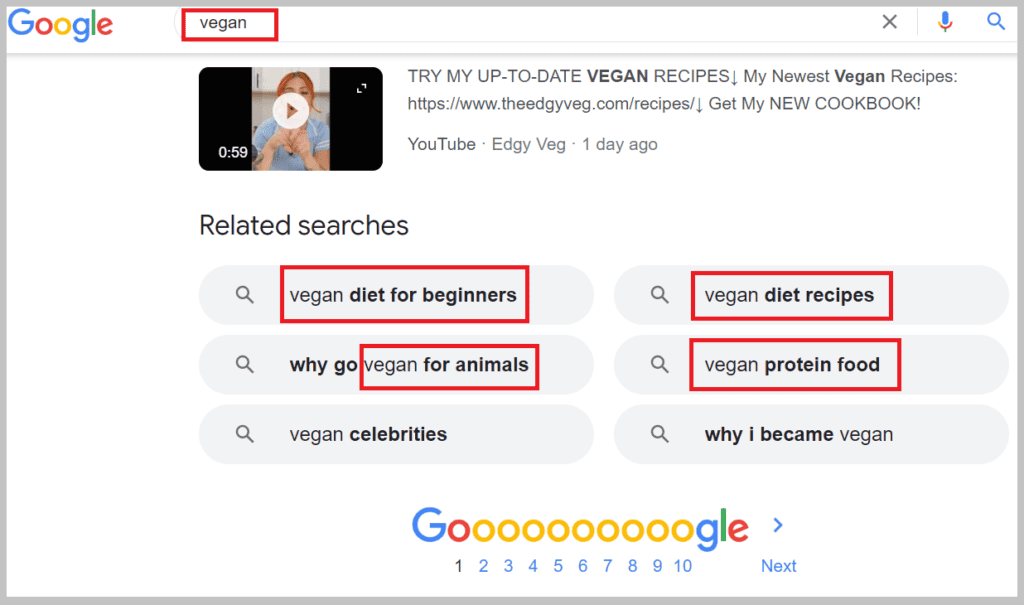
I can select some more keywords below
- Vegan egg
- Vegan diet for beginners
- Vegan for animals
- Vegan protein food
- Protein source for Vegans
Let’s move ahead.
It would help if you also try Google Images; you can get some great keywords from here.
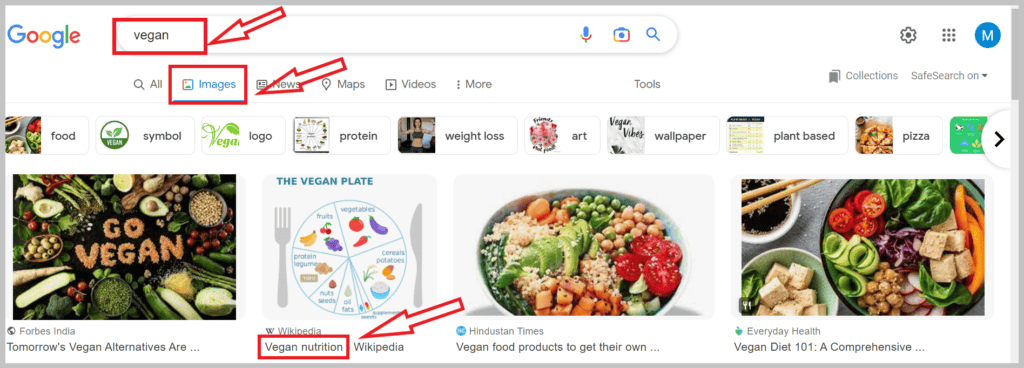
I picked here
Vegan nutrition
Now I have the below list of seed keywords.
- Vegan
- Vegan diet
- vegan food
- vegan products
- vegan recipes
- Vegan egg
- Vegan diet for beginners
- Vegan for animals
- Vegan protein food
- Protein source for Vegans
- Vegan nutrition
I have collected sufficient seed keywords for research.
Now we’ll analyze each seed keyword and create a list of new keywords based on the seed keyword
Let’s move ahead.
Tip:
Also, you can try the Vegan keyword on YouTube to get more keywords.
Step 2# Create a Keywords list based on Seed Keyword:
In this, we will create one keyword list based on selected seed keywords as in step 1.
And would be stored in the keyword manager list in Semrush.
In this, I am using the Semrush tool to explain further. Semrush is one of the best tools I found for keyword research.
You can get many details from Semrush in minutes instead of spending hours in researching.
Let’s start cracking the Code on Keyword Research with the Semrush tool.
Use the Semrush Keyword Overview tool in Semrush to get keywords.
Click on Keyword Overview
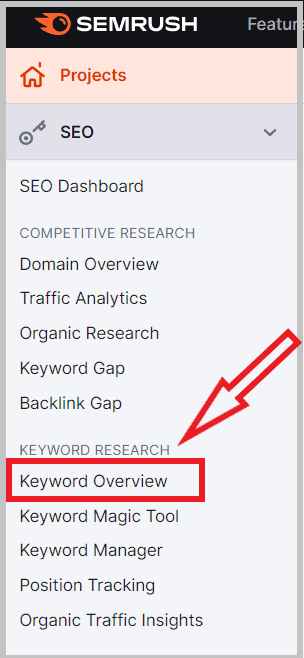
And Input all the selected seed keywords in the keyword overview tool.
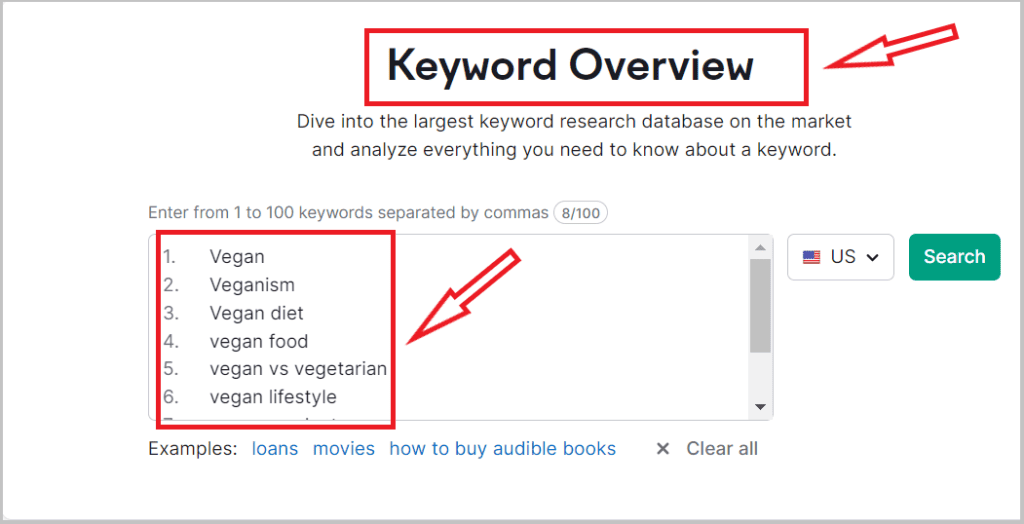
Also, select the region in which you want to search.
I have selected the US (United States) for this.
Hit the search.
You get a list
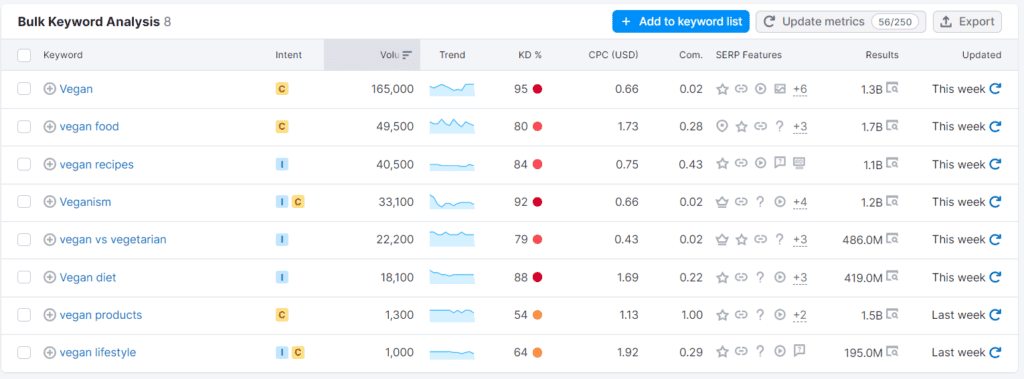
We’ll analyze each seed keyword one by one.
The best keyword is the long tail keyword if your website is new and not getting traffic.
I am picking the seed keyword as Vegan recipes as it is more meaningful than only Vegan.
Follow the below Steps to get the keywords based on the seed keyword Vegan recipes.
Steps to Get the keyword list based on each Seed keyword
1: Create one Dedicated Keyword list through Keyword Manager in Semrush
So, hold on for the moment and open a new window of Semrush
And Click Keyword Manager –> Create List
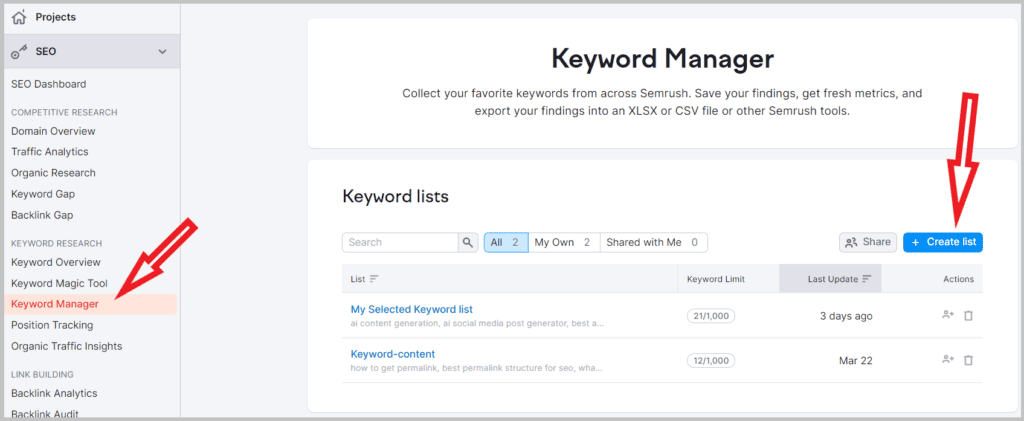
Provide some Names where we would be storing all our keywords for analysis.
I have given my name as Keyword-research-on-Vegan
Click on Create List.
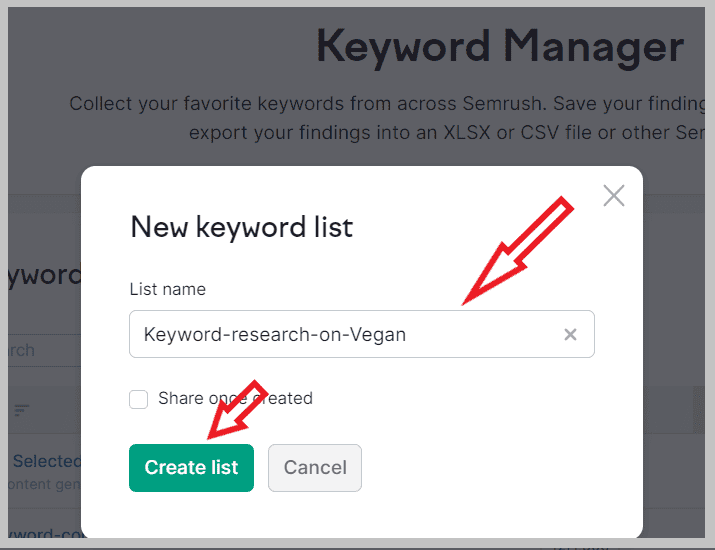
This is the list where we are going to store our keywords.
2: Pick one Seed keyword and Analyse this
Picked the seed keyword = Vegan recipes
Click on the seed keyword: Vegan recipes under the Keyword overview.

It would open the analytics of this keyword (Vegan recipes)
You can see the
Volume, Global Volume, Intent, and CPC data in below
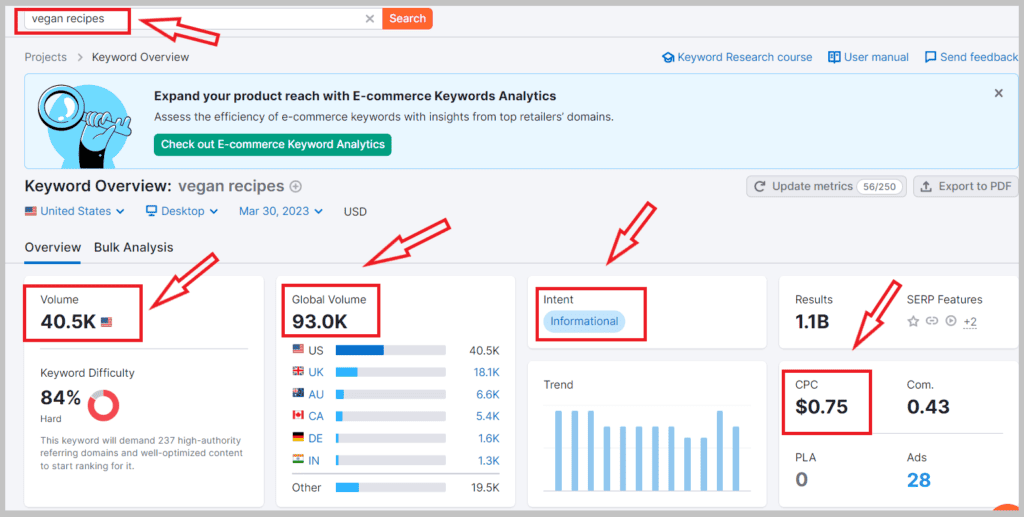
Volume: This is the average number of monthly searches for this keyword (Vegan recipes) over the last 12 months.
Global Volume: Total number of searches for this keyword (Vegan recipes) keyword in all databases.
Intent: The purpose of a search in a search engine.
CPC: Average price in $ advertisers pay for a user’s click on an ad triggered by this keyword (Vegan recipes) (Google Ads).
Just scroll down the above page, and you will get the Keyword Ideas section.
In this, you see the 3 categories of keyword ideas.
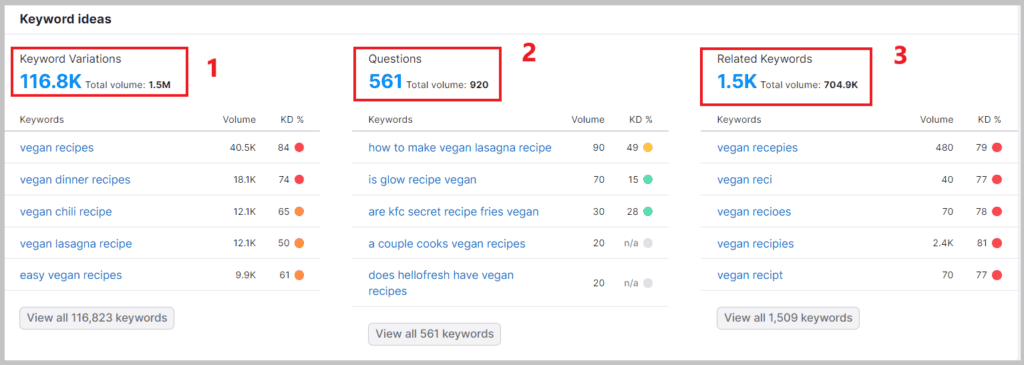
- Keyword Variation
- Questions
- Related Keywords
Also, if you scroll down, you get the SERP analysis
It gives the top 10 results in Google on this keyword: vegan recipes
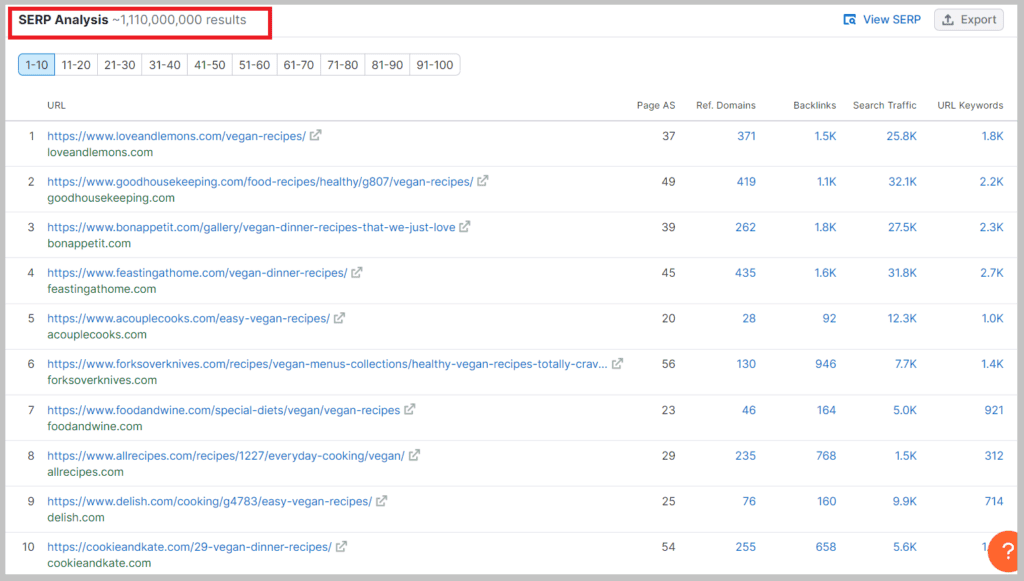
3: Select keywords based on Filters and Store them in Keyword Manager in Semrush
We must select some good keywords based on seed keywords (vegan recipes).
Let’s start with the following:
You can Click on anyone combination.
Keyword Ideas section—-> Keyword Variations—->View All
Keyword Ideas section—-> Keyword Variations—->View All
Keyword Ideas section—-> Related Keywords—->View All
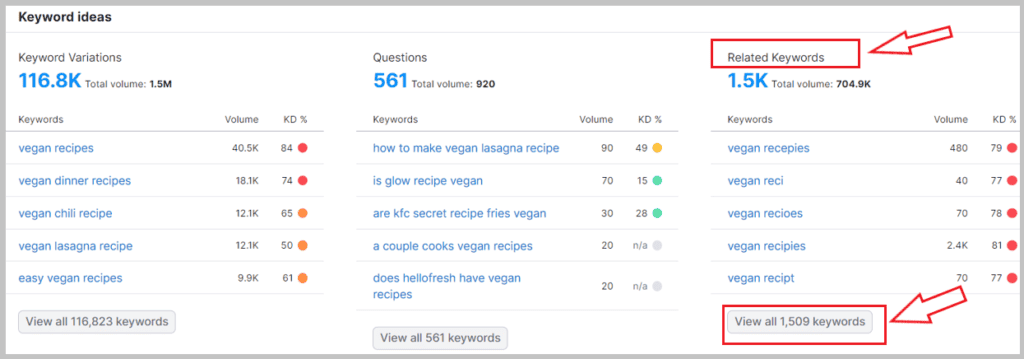
We intend to get low competition and some high-volume keywords.
We are using simple 4 filters in the beginning.
- All + Related
- Volume > = 100 (Volume should be greater than/equal to 100)
- 0<=KD<=29 (Keyword difficulty(KD) should be between 0 and 29)
- Language = English
Apply Filter for Volume
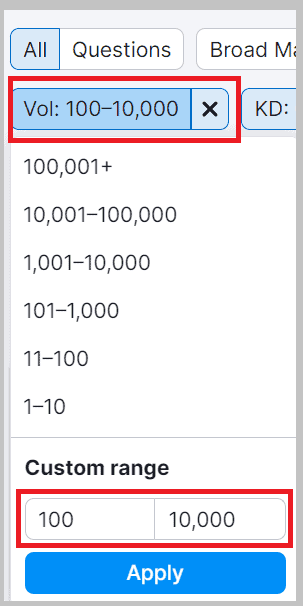
Apply Filter for Keyword Difficulty (KD)
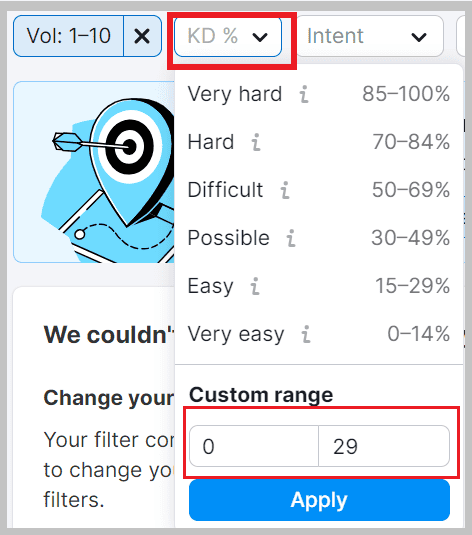
Apply Filter for Language
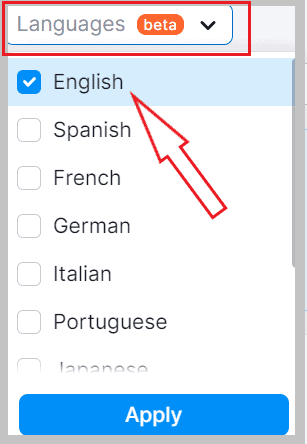
After applying the above filters, we are getting the result below.
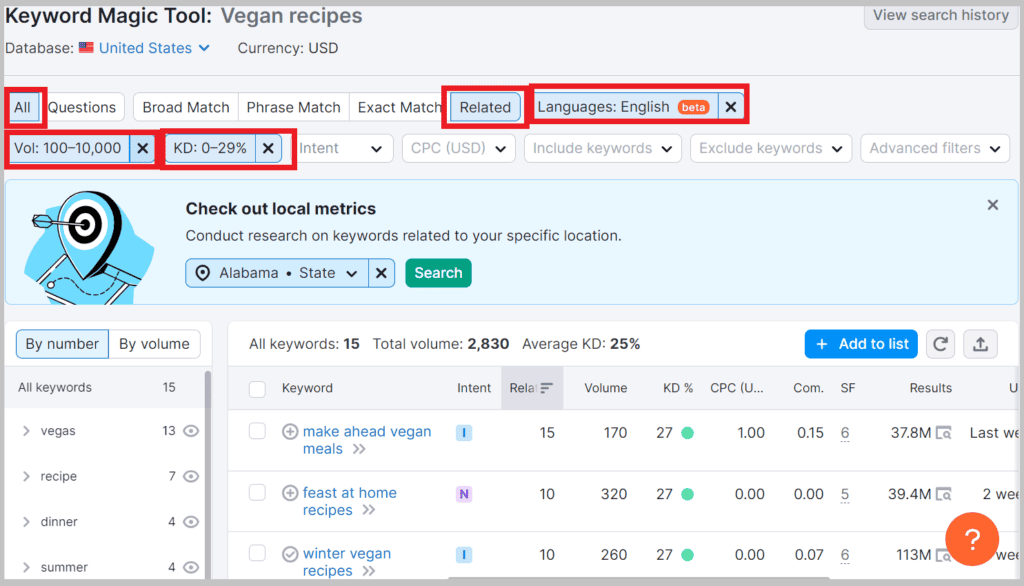
If you want, you can also exclude some keywords unrelated to your search.
On the left side, we have 2 ways
By Number & By Volume
You can use this by clicking on the eye button.
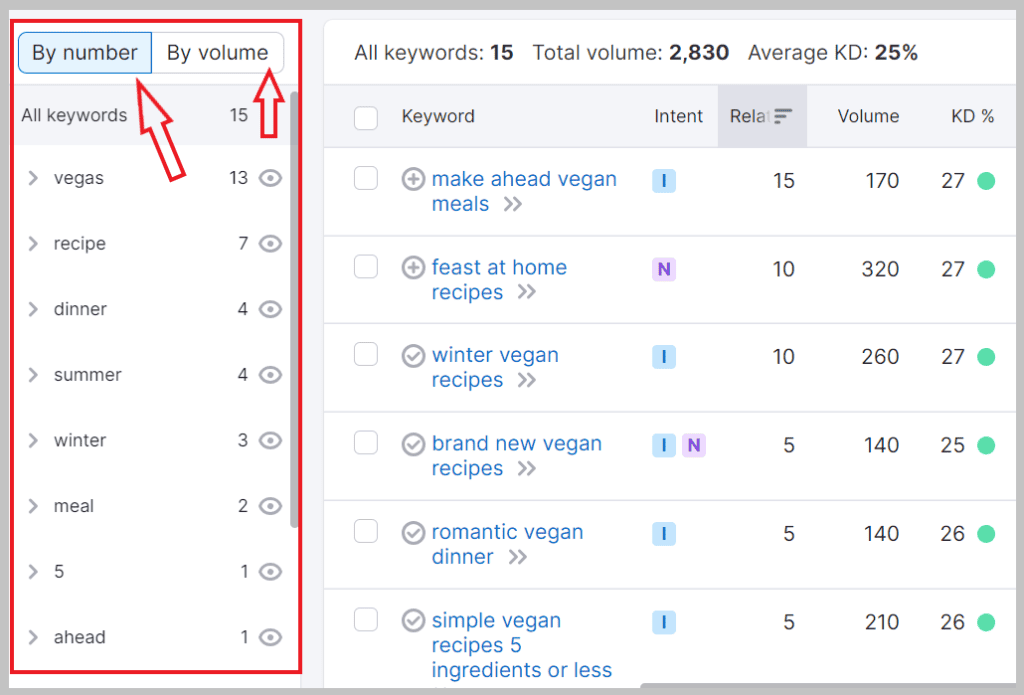
Now we have 15 keywords that we must store somewhere.
Select all 15 keywords below.
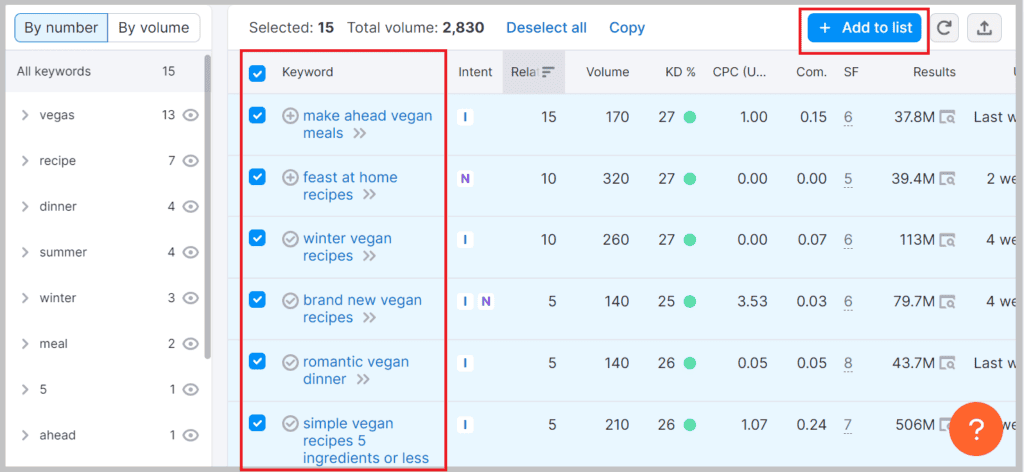
And for moving all keywords to our just created keyword list (Keyword-research-on -Vegan) in Step 3
Click on +Add to list in the above screenshot
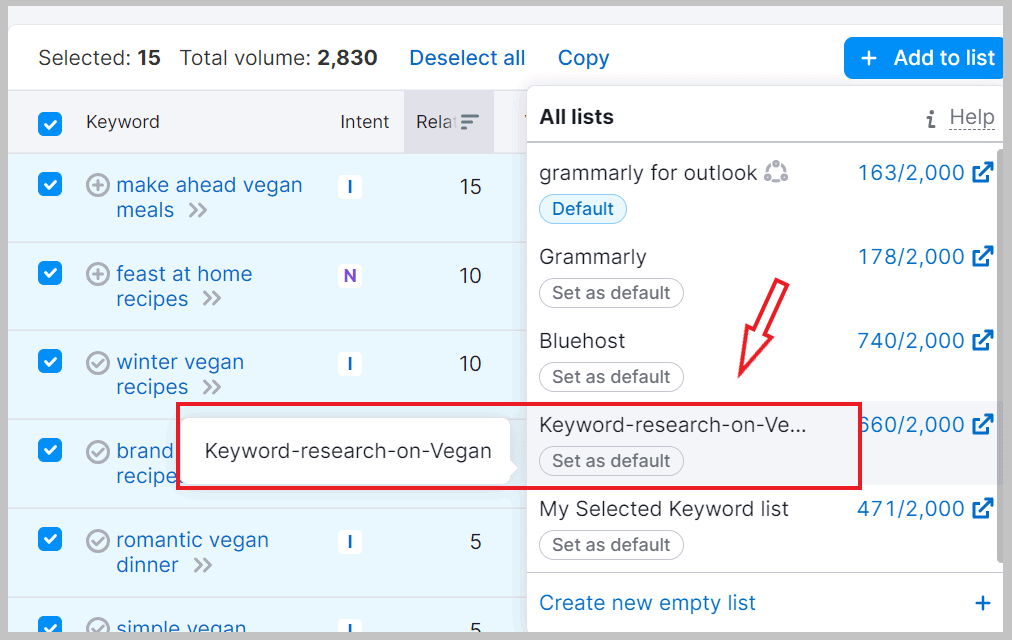
Click on Keyword-research-on-vegan to add all 15 keywords to this keyword list.
Now all the keywords have been moved to our keyword list.
As you see, I used the below filters.
- All +Related
- Volume >= 100
- KD between 0 and 29
- Language =English
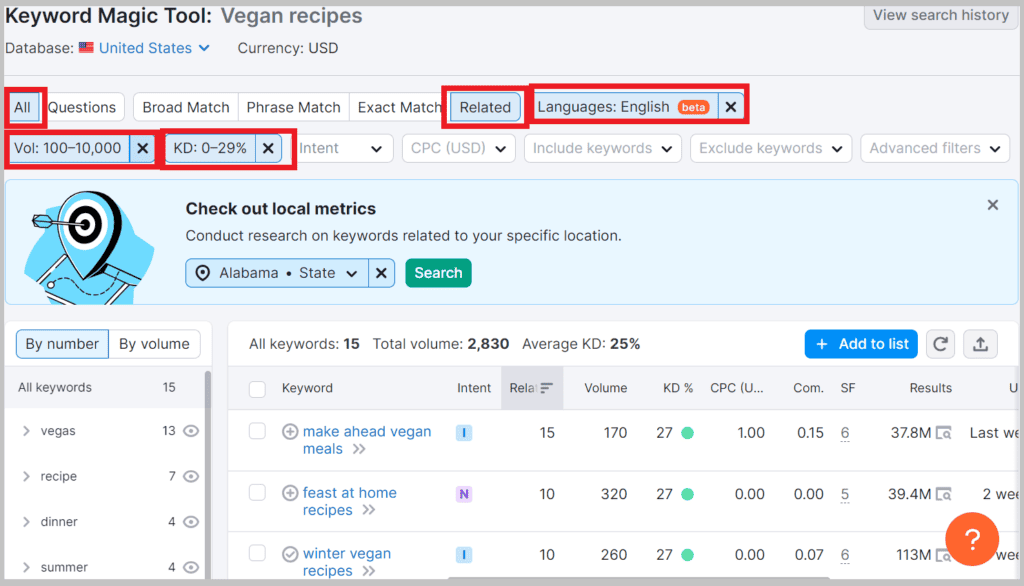
Now use the below combination.
- All +Exact Match
- Volume >= 100
- KD between 0 and 29
- Language =English
Move all the above keywords to the Keyword list as we did before.
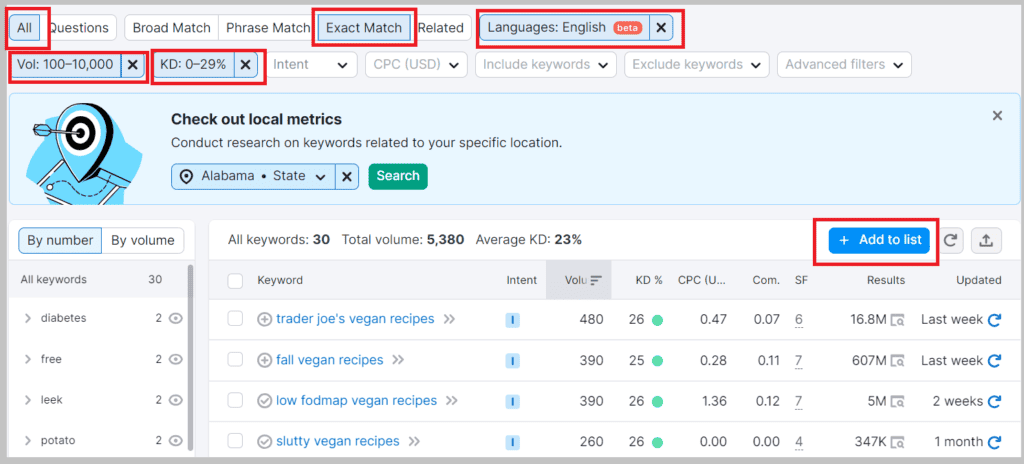
Now use the below combination.
- All +Phrase match
- Volume >= 100
- KD between 0 and 29
- Language =English
Move all the above keywords to the Keyword list as we did before.
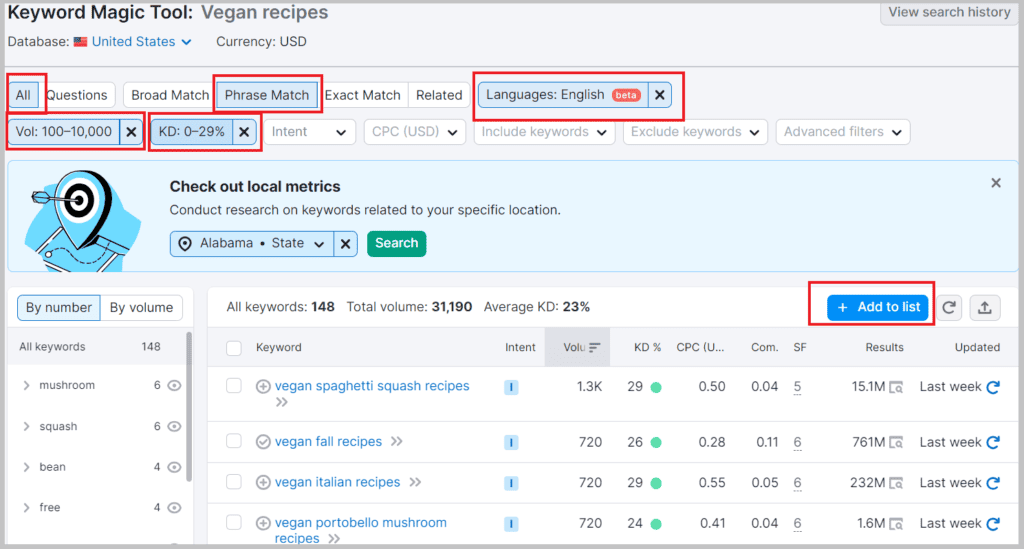
Now use the below combination.
- All +Broad Match
- Volume >= 100
- KD between 0 and 29
- Language =English
Move all the above keywords to the Keyword list as we did before.
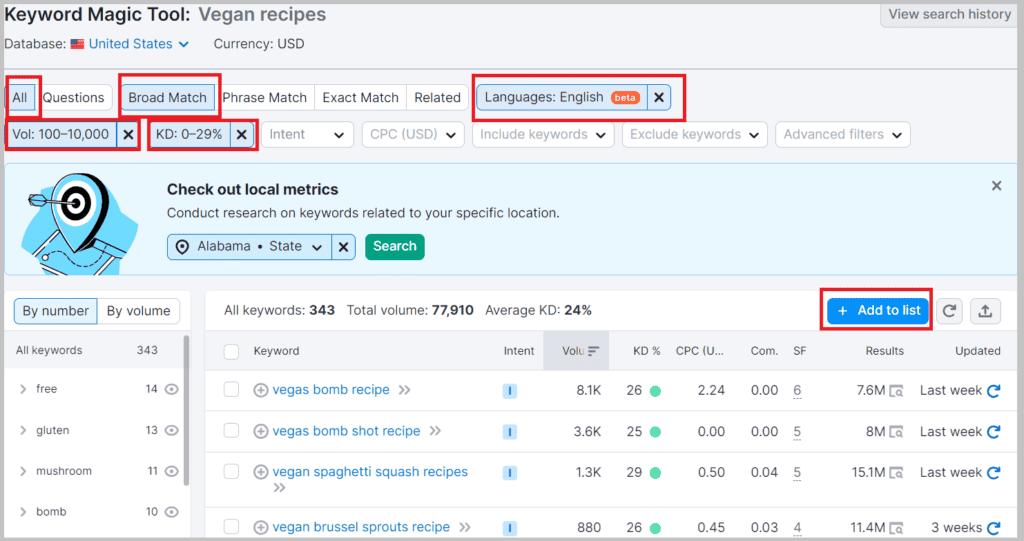
If you want to see keywords based on questions, follow the below.
- Questions +Broad Match
- Volume >= 100
- KD between 0 and 29
- Language =English

Next, use the below combination.
- Questions +Phrase Match
- Volume >= 100
- KD between 0 and 29
- Language =English

Next, use the below combination.
- Questions +Exact Match
- Volume >= 100
- KD between 0 and 29
- Language =English

Use the below combination.
- Questions +Related
- Volume >= 100
- KD between 0 and 29
- Language =English

Finally, we have collected all the keywords below in our Keyword Manager: Keyword-research-on-Vegan.
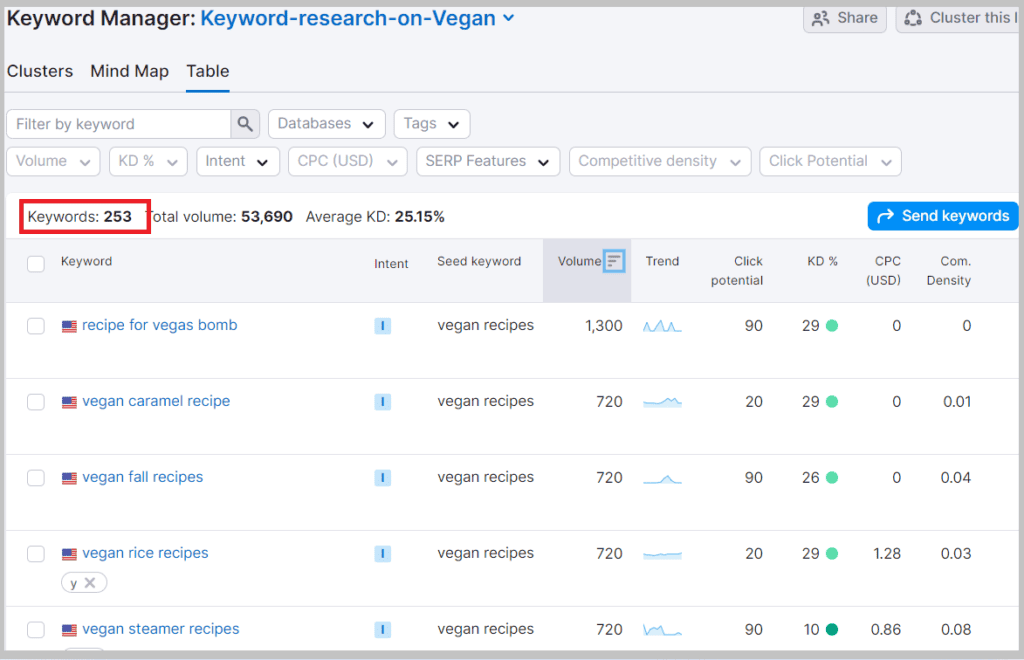
In the above exercise, we did for seed keyword: vegan recipes & collected the 253 keywords, and stored them in Keyword Manager.
For the below rest of the seed keywords, repeat the same exercise from Step 2 to Step 3
- Veganism
- Vegan diet
- vegan food
- vegan vs. vegetarian
- vegan lifestyle
- vegan products
- Accidentally vegan
- Vegan egg
- Vegan diet for beginners
- Vegan for animals
- Vegan celebrities
- Vegan protein food
- Vegan Society
- Protein source for Vegans
- Vegan nutrition
And store all the keywords in your keyword manager list for further analysis.
Till this step, we have collected many keywords based on seed keywords.
Now we need to check the potential of each keyword.
Next, we’ll see how to analyze each keyword and make our final list.
Step 3# How to Analyse Each Keyword in the Keyword Manager List:
Till this step, we have collected a decent number of keywords in our keyword manager list.
Now is the time to select the best keywords for our purposes.
Let’s start.
Under Keyword Manager
Click our Keyword list as Keyword-research-on-Vegan.

Case 1: Your Website is old
If your website is old and you have developed some authority, you should follow the below.
Sort by Volume (Descending order)
Just pick the top 5 Keywords from the list below:
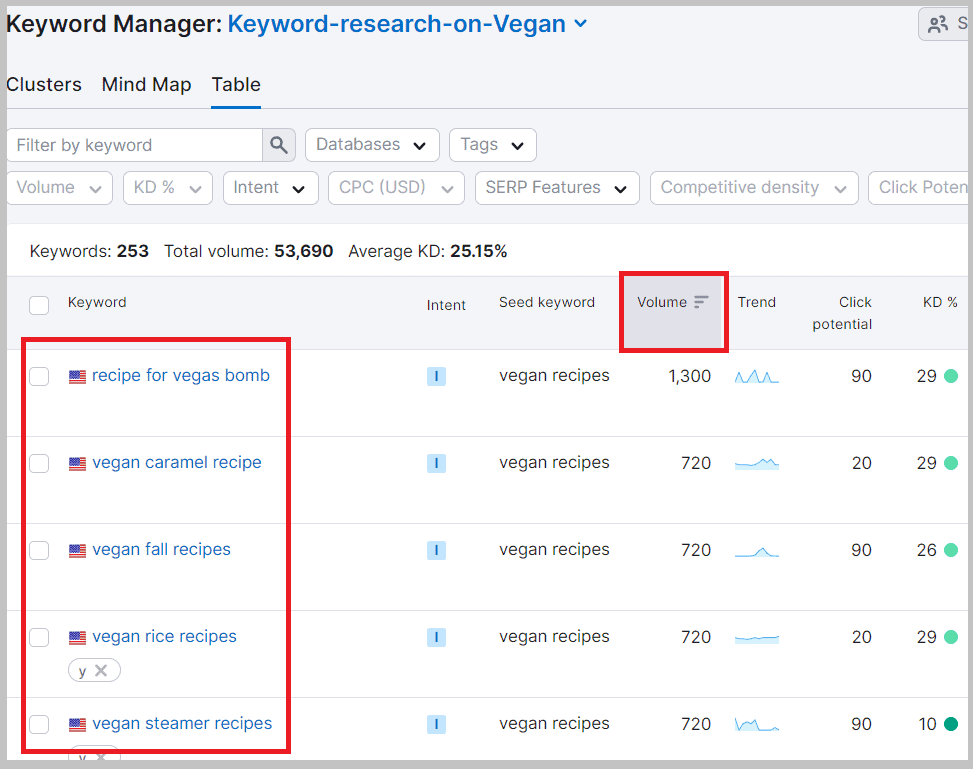
Also, you need to check that this keyword should be related to your niche.
If it is irrelevant to your area, drop this keyword and select the next keyword from the list.
Do the same process until you get the 5 keywords from the list.
Do not worry about KD; we have already taken KD (Keyword Difficulty- below 29)
do not worry, In a couple of minutes, we’ll analyze the potential of each keyword.
Case 2: Your Website is New
If your website is new, you should sort KD (Keyword Difficulty) in ascending order.
And just select the top 5 Keywords from the list:
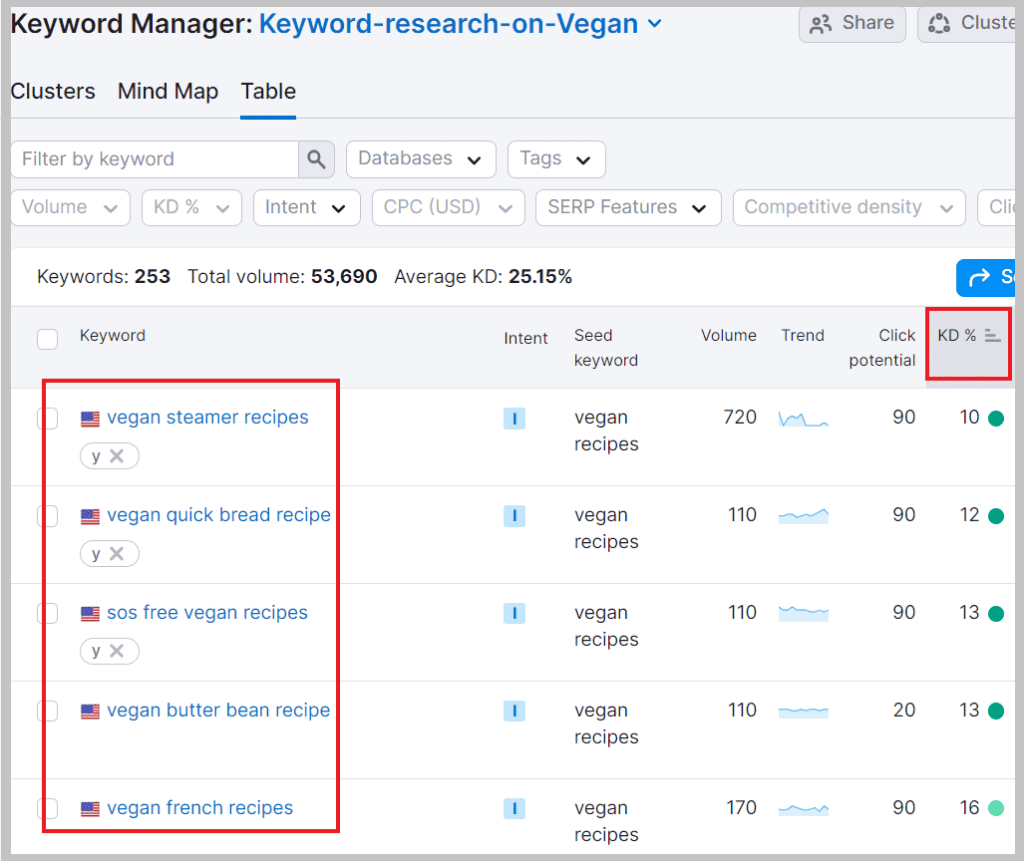
Please do the same process as we did in Case 1
Now assume you have selected the 5 keywords related to your niche/business.
Next, we need to check the potential of each keyword.
Till this step, you have 5 Keywords.
How to Analyze the Potential of any Keyword in Semrush:
In this, we’ll check the potential of each keyword that we are selecting.
Volume & difficulty we are already taking care of.
- Volume should be >= 100
- & Keyword Difficulty should be between 0 & 29
Now we’ll check some more parameters for a keyword.
Suppose in the below keyword list, you select the 2 keywords
- recipe for Vegas bomb
- vegan steamer recipes
Let’s Analyze the first keyword: recipe for Vegas bomb.
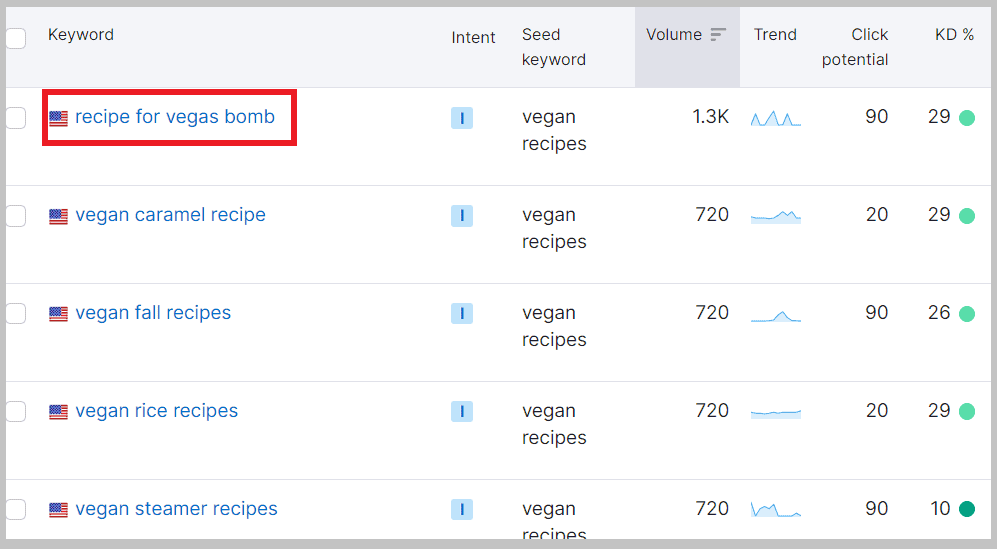
Click on this keyword.
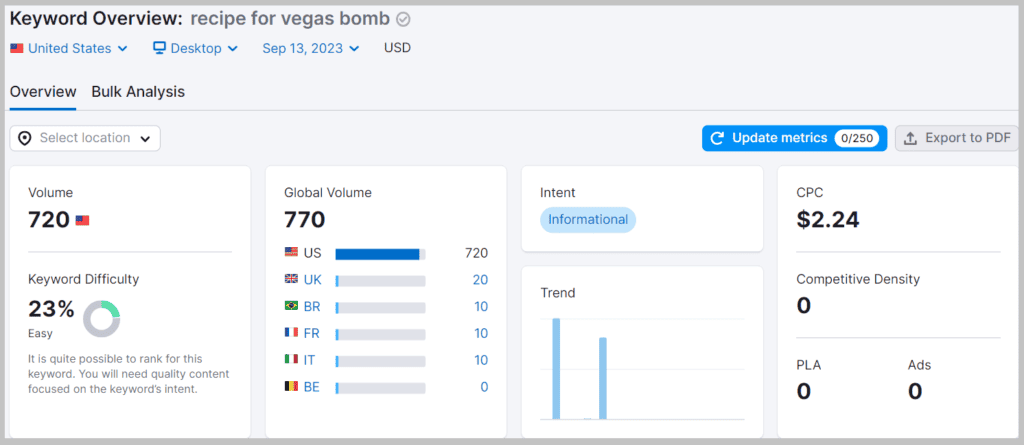
Just scroll down a little.
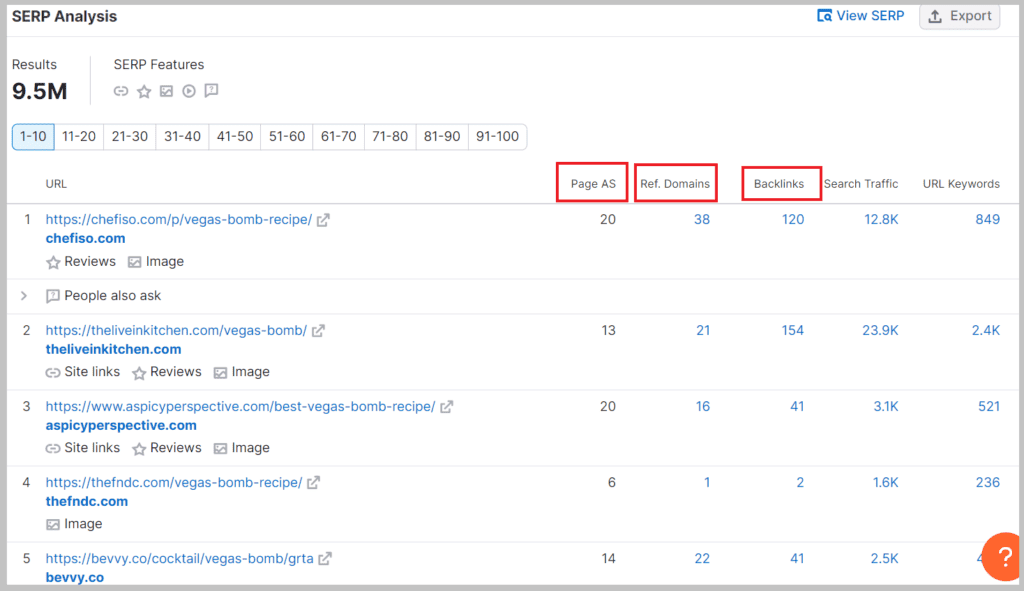
Just have a look at the below items
Page AS (Page authority score): It measures the domain reputability based on quality backlinks, organic search traffic, etc.
Ref Domains: The total number of referring domains that have at least one link pointing to a given URL.
Backlinks: The total number of backlinks leading to a given URL.
All 5 positions in the above screenshot have some good Page Authority and backlinks.
If your site is new and getting no traffic initially, you should not pick this keyword.
As content /Blog /Business on this keyword would be difficult for you to rank under 5 Position in Google’s SERP.
And if you are not coming on the first page of Google, it will undoubtedly impact your business.
So, in this example, we saw that volume is good and also has low Keyword difficulty, even though you should not select this.
Now let’s move to our 2nd keyword.
vegan steamer recipes
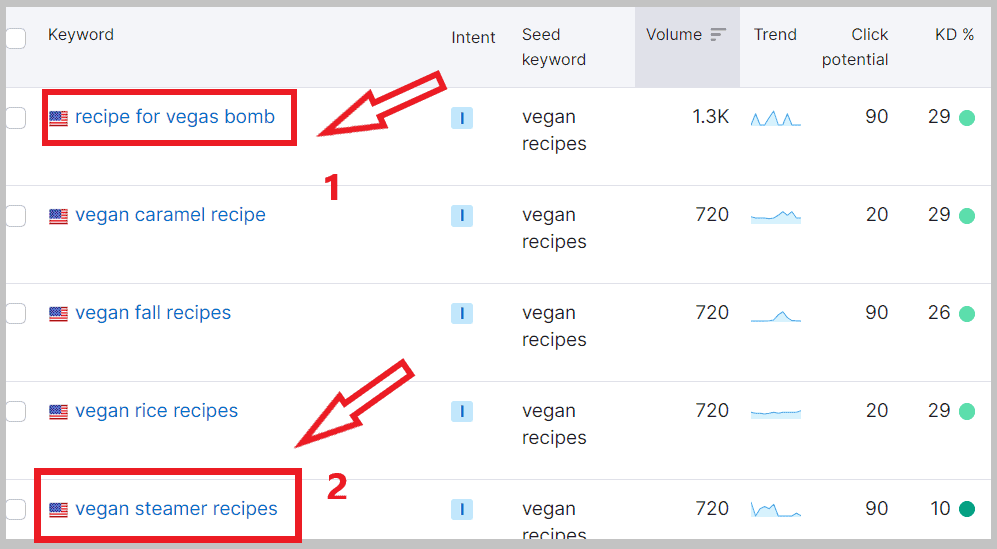
Click on this.
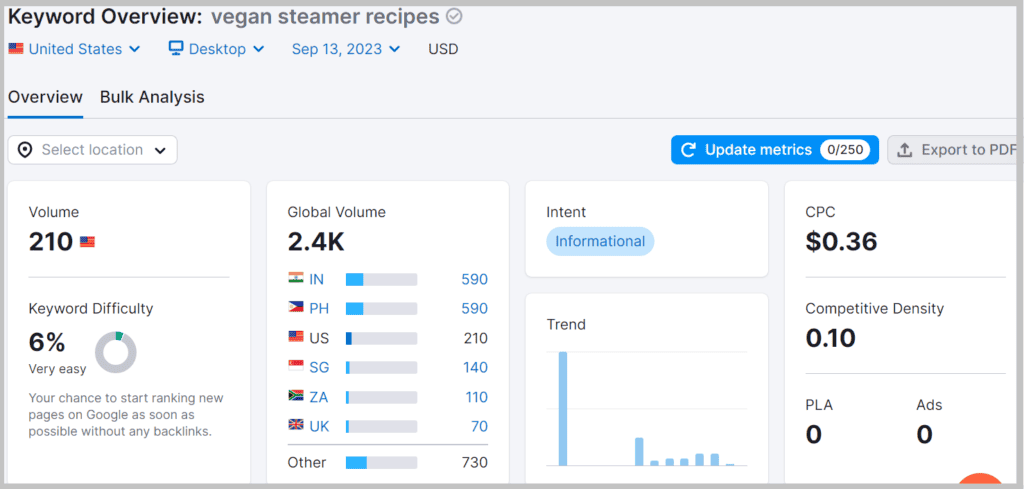
Scroll down.
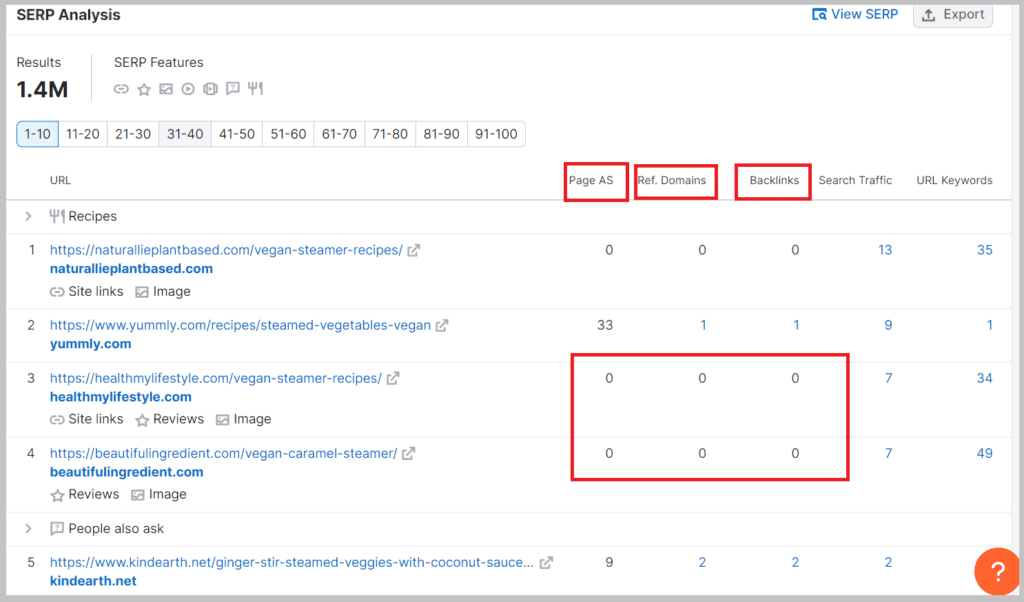
You can check above that the 3rd & 4th positions where
Page Authority is Zero
Backlinks & Ref. Domains are also ZERO or much less.
It shows that if you write quality content on this, this is a massive chance that you can rank under 5 positions on Google’s search result page.
Which would help to boost your organic traffic.
In the same way, you can analyze each keyword before keeping this in your final list.
This way, you can find your top 5 keywords for your business.
Optimize your content on such keywords and then see the power of organic traffic.
Tip:
Last but not least:
In Semrush, you can also check any data about any website’s particular page before deciding on keywords.
Just go to the Semrush Organic Research tool below and add any website’s page URL.
Hit the search button.
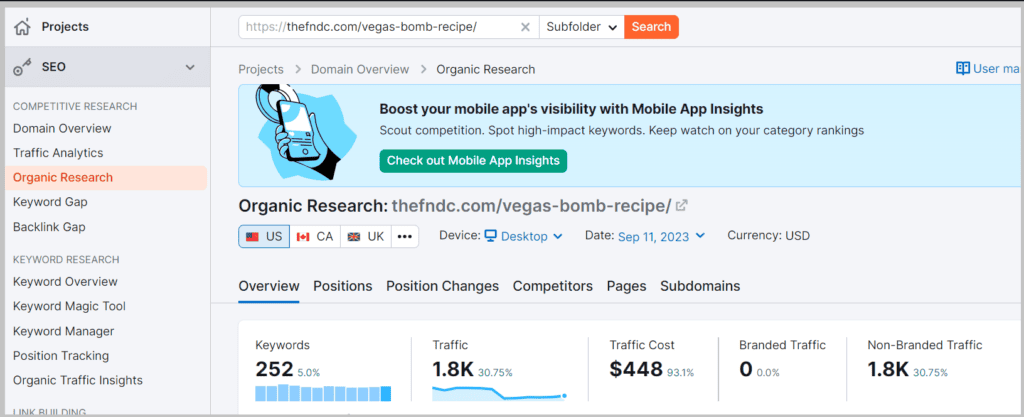
You can see many important data to analyze this website.
You can make better decisions while finalizing the keyword.
Mainly I use this to see what is traffic of a particular page.
Conclusion
In today’s competitive online market, keyword research has emerged as a game-changing strategy for businesses seeking to optimize their online presence.
By using the power of keywords, businesses can attract targeted traffic, improve search engine rankings, gain a competitive edge, and ultimately drive more conversions.
Investing time and effort in comprehensive keyword research will undoubtedly boost your business toward success in the digital world.
Embrace the potential of keyword research and watch your online visibility soar.
I hope this blog will help you in your keyword research by using the Semrush tool.
Now it’s your turn; if you have some other good idea to select a keyword through Semrush, let me know in the comment section.
Keep Smiling and Start Sharing!
Frequently Asked Questions(FAQ) on Keyword Research using Semrush tool.
If your website is new so, try to use long tail keywords with low keyword difficulty (0-29)
It is a 3-step process.
Collect your seed keywords in your area
On each seed keyword, collect the corresponding keywords
Analyze the potential of each keyword before making a final list of keywords.
In Paid tools, you can use Semrush or Ahrefs; both are great tools.
In the free tool, you can try to google keyword planner.
You can target 2-3 primary keywords for your content.





